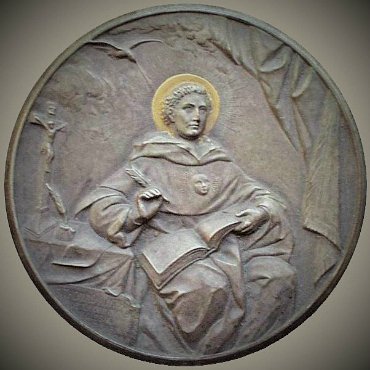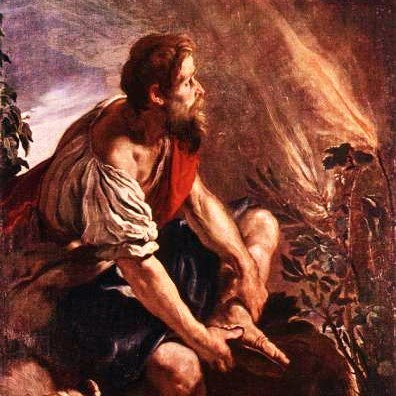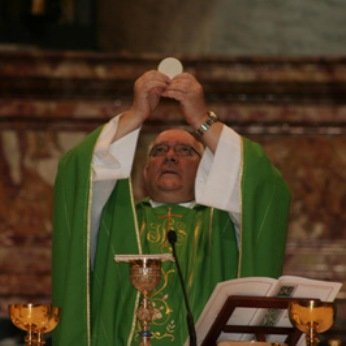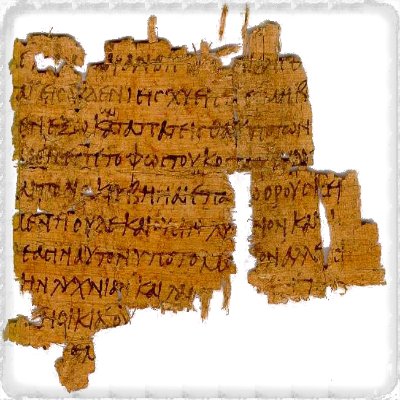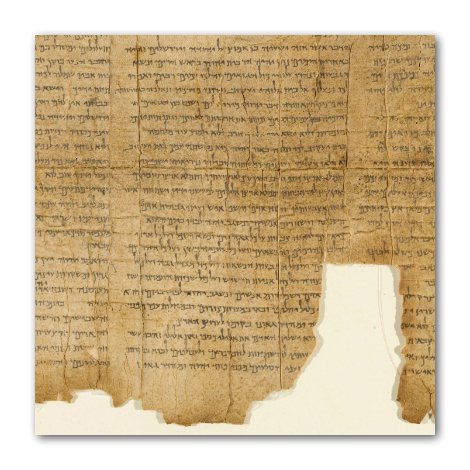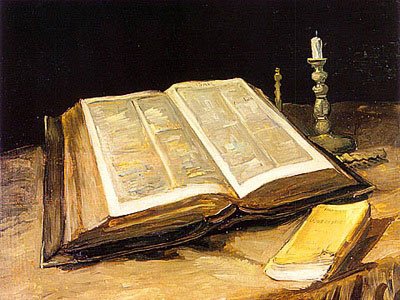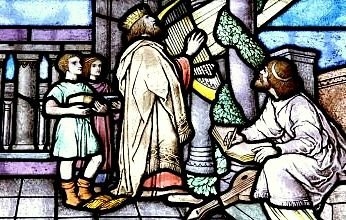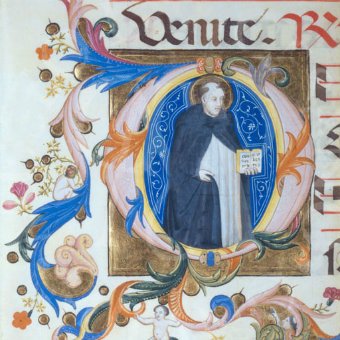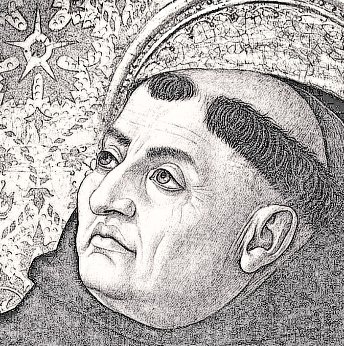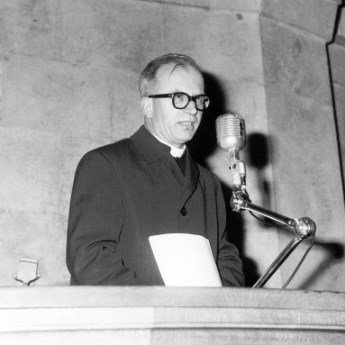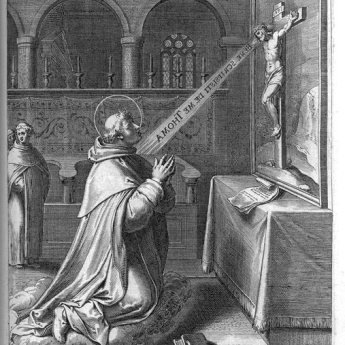TOMÁS DE AQUINO, EL SANTO Mons. Adolfo Tortolo, Arzobispo de Paraná. (Revista Mikael 5, 1974, 7-17). I. LA SANTIDAD Quizá ninguna palabra sea tan privativa de Dios como la palabra Santidad. “Yo soy Santo; sólo Dios es Santo”, no son expresiones de un simple atributo. La Santidad en Dios es mucho más. Es el medio vital en que vive Dios necesariamente, penetra toda su realidad ad intra y toda su acción ad extra. Es el halo del misterio que lo …
Actualidad de Tomás de Aquino, P. Leonardo Castellani
Actualidad de Tomás de Aquino, P. Leonardo Castellani Santo Tomás es sumamente actual, e irá siéndolo más y más in dies. La razón es que intelectualmente no existirán más que Hegel y Tomás de Aquino trabados en lucha a muerte, dentro de poco. Estamparé aquí una afirmación osada, que a quien le parezca disparatada o temeraria no tiene más que pedirme se la pruebe… Es ésta: en la época en que estamos, la Epoca Atómica (que yo llamaría “Parusíaca”), no habrá más filosofía. Habrá …
Esse y esencia en Dios, P. Carlos Buela IVE (III)
VIII. «El que es» Creemos que la obvia palabra de la Escritura «Yo soy» (Ex 3,14), «El que es» (Sb 13,1), expresa que la esencia de Dios es el Ser y que lo distingue de todos los demás seres: «Yo, Yavheh, ese es mi nombre, no doy mi gloria a ningún otro, ni a los ídolos mi alabanza» (Is 42,8). Estamos totalmente de acuerdo con los Padres que afirmaban: «El ser en Dios no es accidente, sino verdad subsistente» (San …
Esse y esencia en Dios, P. Carlos Buela IVE (II)
VI. «Qui sum» En el Sinaí fue revelado a Moisés «el más propio de los nombres de Dios»[12], donde se explica el nombre por el verbo «ser», tercera persona de la forma qal del verbo hebreo hyh, que significa ser, existir. Allí, enigmáticamente, responde Dios a la pregunta de Moisés «Tú, ¿quién eres?» (Ex 3,13), diciendo: «Yo soy el que soy» (’ehyeh ‘aser ’ehyeh, v.14). Y más adelante en primera persona: «Yo soy» (’ehyeh, v.15), y poniendo la frase en labios de Moisés, …
Esse y esencia en Dios, P. Carlos Buela IVE (I)
Esse y esencia en Dios[1] I. De las creaturas al Creador En su magistral camino de las creaturas al Creador, Santo Tomás parte de hechos de la experiencia sensible, como el movimiento, la causalidad, la contingencia, la participación, el orden, remontándose a Aquel que mueve y no es movido, causa y no es causado, existe y hace existir, el ser supremo de quien todos participan, ordenador y no ordenado por otros[2]. Para quien tenga una clara inteligencia metafísica de las …
Why do we study St. Thomas Aquinas?
Why do we study St. Thomas Aquinas? One of the main tasks in the evangelization of culture is to conform the mind of man to the mind of God. This entails that we should have the mind of God; we should have the mind of the Church. Thus, the main goal of our intellectual formation is to conform ourselves to the mind of the Church. This necessarily requires that we should “arrive at the certainty of truth founded on the …
La doctrina Tomista de los sentidos bíblicos (VII), P. Lic. Martín Villagrán IVE
Consideraciones conclusivas Como conclusión de nuestro trabajo, repasaremos sumariamente el camino recorrido a fin de obtener el panorama de lo dicho y destacar ciertos elementos que juzgamos centrales. Si bien el corazón del trabajo ha sido el tratamiento de la doctrina y la praxis tomistas, hemos considerado que el punto introductorio dedicado a Lc 24 podría iluminar en algún modo lo que habríamos de exponer. En este sentido, la consideración del último capítulo del Evangelio del apóstol san Lucas, ha …
La doctrina Tomista de los sentidos bíblicos (VI), P. Lic. Martín Villagrán IVE
b. El cuerpo del comentario al Salmo El comentario a este Salmo tiene un fuerte contenido cristológico que trataremos de presentar en su diversidad y complejidad. Para Santo Tomás este Salmo se refiere de modo especial a Cristo ya que es el Señor que en la cruz lo ha recordado (cfr. Mt 27,46; Mc 15,34) y es la Iglesia la que así lo entendió siempre hasta el punto que fue condenado quien lo negó[1]. Aunque ciertamente conoce y considera la …
La doctrina Tomista de los sentidos bíblicos (V), P. Lic. Martín Villagrán IVE
3. El Comentario de santo Tomás al Salmo 22 (21) Para presentar el comentario del Aquinate al Salmo en cuestión, podemos distinguir tres momentos: una breve aunque importante introducción; la interpretación del título y finalmente la rica exposición del texto bíblico. a. Introducción “En (los Salmos) precedentes se trata primeramente de la tribulación que sostuvo David de parte del hijo y de parte de Saúl; pero aquí, en esta tercer decena, trata de la persecución que padeció de parte de …
La doctrina Tomista de los sentidos bíblicos (IV), P. Lic. Martín Villagrán IVE
III. Los sentidos bíblicos en los Salmos Es el momento de realizar esta incursión parcial en la praxis exegética de santo Tomás para ver, por una parte, si existe coherencia con lo antes expuesto y, por otra, para tener una perspectiva más amplia de esta doctrina tomista. La obra elegida hemos dicho que será el comentario a los Salmos, del cual nos interesa el rico proemio en que se establecen criterios fundamentales para el desarrollo del libro y que se …
La doctrina Tomista de los sentidos bíblicos (III), P. Lic. Martín Villagrán IVE
2. Un intento de síntesis Ya es momento de recolectar las diversas observaciones realizadas y tratar de presentarlas lo más fiel y substancialmente posible. Por esto proponemos unas definiciones de los elementos más importantes de esta doctrina e individualizamos algunos principios que se encuentran incorporados en estas exposiciones tomistas que hemos seguido. Evitaremos las palabras superfluas y trataremos de que nuestra propuesta de definición abarque exhaustiva y armónicamente los diversos puntos destacados en las páginas precedentes. a. Propuesta de definiciones …
La doctrina Tomista de los sentidos bíblicos (II), P. Lic. Martín Villagrán IVE
II. Los sentidos bíblicos en Santo Tomás de Aquino 1. Doctrina tomista de los sentidos bíblicos a. Scriptum super libros Sententiarum, I, prol., q. 1, a. 5.: sobre el modus procedendi de la Doctrina Sacra b. Quaestiones disputatae De potentia, q. 4, a. 1, c.: interpretación del relato bíblico de la Creación c. Quaestiones de quolibet, VII, q. 6, a. 1-3: Sobre los sentidos de la sagrada Escritura d. Expositio et lectura super epistolas Pauli Apostoli. Ad Galatas, c. 4, lect. …
The intensive hermeneutics of Thomistic philosophy: the notion of participation, by Cornelio Fabro (VII)
VII Whereas Platonic vertical participation is actualized merely as imitation of the Idea and hence as a fall, as it were, into non-being and the phenomenon, the Aristotelian horizontal causality is like an endless repetition of universal essence in the singulars. The result is that both theories tend to emphasize formal univocity. In contrast, the Thomistic notion of participation, founded in esse as supreme intensive act, makes it possible to pass from finite to Infinite Being through analogical discourse, which …
The intensive hermeneutics of Thomistic philosophy: the notion of participation, by Cornelio Fabro (VI)
VI To the extent that participation allows one to conceive the created universe in the complexity of its natures as a reflection of divine ideas or exemplars, one may speak of participation by similitude (per similitudinem) in the transcendental order according to a relation of dependence of the finite on the Infinite. This has been expressed by Boethius in the following terms: “From these forms, which are beyond matter, stem the other forms that are in matter and make up …
The intensive hermeneutics of Thomistic philosophy: the notion of participation, by Cornelio Fabro (V)
V From the preceding discussion it becomes clear that in Thomistic speculation the notion of participation expresses the ultimate point of reference both from the static viewpoint of the creature’s structure and from the dynamic viewpoint of its dependence on God. This notion takes from Platonism the idea of exemplar relationship and absolute distinction between participating being and Esse subsistens, and from Aristotelianism the principle of real composition and real causality at every level of participated, finite being. To assert, …
The intensive hermeneutics of Thomistic philosophy: the notion of participation, by Cornelio Fabro (IV)
IV St. Augustine developed his philosophy outside the Proclian line of thought mentioned above. Not knowing the works of Aristotle, he could not attempt a dialectical synthesis of the two philosophers; instead he directly raised Plotinian Neoplatonism to the highest level of Christian thought. Thus his notion of participation aims to provide a basis for the “catharsis” of the soul in its [461-462] approach to the divine Ideas contained in the eternal Word “the vision of which [the ideas] makes …
The intensive hermeneutics of Thomistic philosophy: the notion of participation, by Cornelio Fabro (III)
III To the Platonic doctrine of participation based on imitation and transcendence, Aristotle opposed the immanence of the form in sensible substances and the causality of the individual singular in the process of natural becoming. At this point Greek thought did not seem to offer any way out of the impasse in which it found itself. Indeed, if Aristotle was right in vindicating the reality of sensible substance, this latter could not be viewed by him as the perfect substance. …
The intensive hermeneutics of Thomistic philosophy: the notion of participation, by Cornelio Fabro (II)
II In ordinary usage participation has a sociological meaning that can be extended to include all relations pertaining to the union of the members of a collectivity for the objectives and purposes that concern them in one way or another. This kind of participation may refer to knowledge or will, sentiment or activity, as the following expressions indicate: to participate in news, a happy or unhappy event. Such applies not to any person whatsoever but to one who can or …
The intensive hermeneutics of Thomistic philosophy: the notion of participation, by Cornelio Fabro (I)
[The review of metaphysics, March 1974, volume XXVII, Nº 3 issue Nº 107, 449-490] I [449] In the platonic tradition, the term “participation” signifies the fundamental relationship of both structure and dependence in the dialectic of the many in relation to the One and of the different in relation to the Identical, whereas in Christian philosophy it signifies the total dependence of the creature on its Creator. The term participation has played an extensive role in Patristic and medieval speculation. …
St. Thomas Aquinas: Theologian and Mystic, by Jean-Pierre Torrell O.P.
THE TITLE of this study may be surprising.[1] Thomas Aquinas is unquestionably a great theologian, but is he also a mystic? A preliminary answer to this question could be found in the fact that he is a canonized saint, and that, in one way or another, God was at the heart of his life, as is true of all saints. While this answer is certainly true, it is not specific enough. Since this saint is a theologian, we can disregard …

